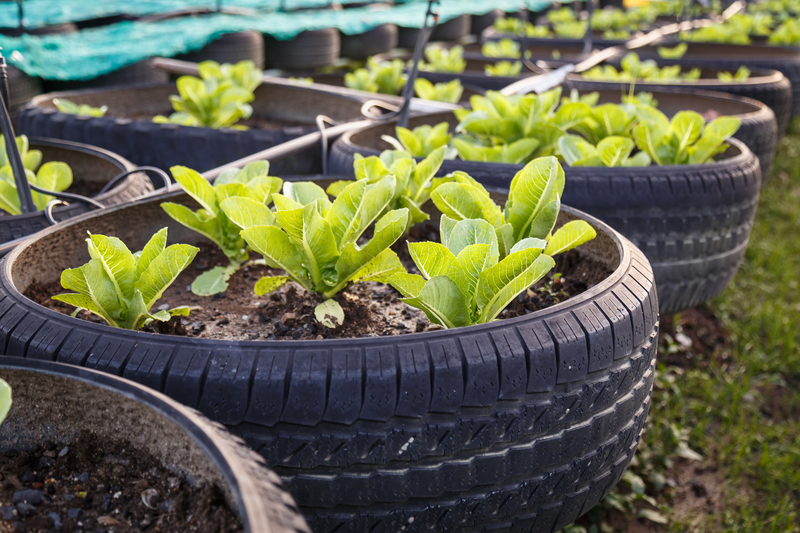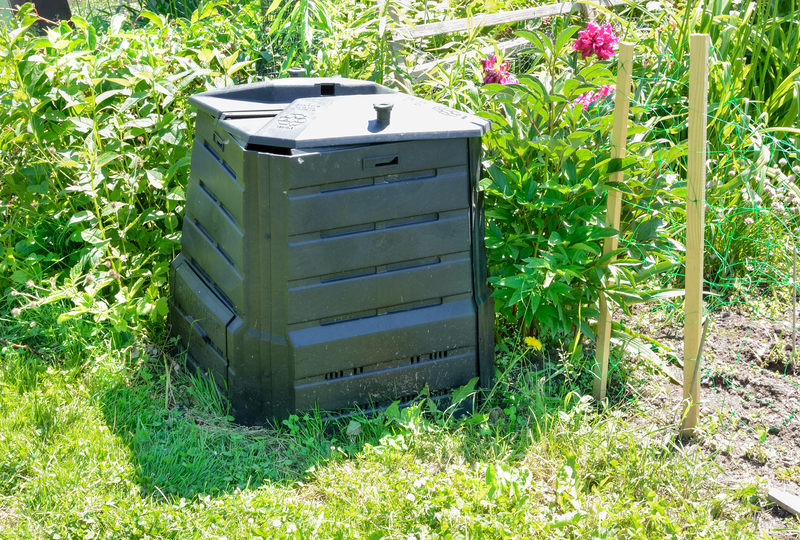Managing Surplus Domestic Waste
Posted on 26/08/2025
Dealing with surplus domestic waste remains a pressing issue in modern societies. As the consumption of goods increases, so does the production of waste, leading to heightened environmental challenges. However, effective waste management strategies can mitigate these issues, promoting sustainability and a cleaner planet. This article will explore various methods for managing excess domestic waste and the importance of each approach.
Understanding Surplus Domestic Waste
Surplus domestic waste refers to the excess garbage produced within households that exceeds the regular disposal capacity. This waste can include organic matter, plastics, papers, metals, and potentially hazardous materials like batteries and electronic devices. Understanding the nature and composition of this waste is crucial in developing effective management strategies.

Why Managing Surplus Domestic Waste Matters
The ramifications of unmanaged domestic waste extend beyond localized impacts. Overfilled landfills, soil contamination, water pollution, and greenhouse gas emissions are just a few global issues arising from improper waste disposal. Additionally, waste mismanagement contributes significantly to the depletion of natural resources and negatively affects public health.
Strategies for Effective Waste Management
Managing surplus domestic waste requires a multi-faceted approach encompassing reduction, reuse, recycling, and responsible disposal. Let's delve into these strategies in more detail:
1. Waste Reduction at Source
The most effective way to manage surplus waste is to reduce its generation at the source. This can be achieved through:
- Mindful Purchasing: Opt for products with minimal packaging and bulk items to reduce the overall amount of waste produced.
- Composting: Separate organic waste and compost it to reduce the volume of trash that reaches landfills.
- Digital Subscriptions: Switch to digital versions of newspapers, magazines, and billing statements to cut down on paper waste.
Reusing and Repurposing
Before discarding items, consider if they can be reused or repurposed. Some actionable ideas include:
- Creative Repurposing: Transform old containers into storage solutions or art projects.
- Donations: Donate gently used clothes, books, and appliances to charities or thrift stores instead of throwing them away.
- Upcycling: Convert waste materials into new, functional products. For example, using old tires to make garden planters or crafts.
Recycling and Sorting
Recycling is a cornerstone of waste management. By ensuring that recyclable materials are properly sorted and processed, we can significantly reduce the impact of surplus domestic waste. Important steps include:
- Segregation: Effective sorting of waste into categories like paper, plastic, glass, and metal helps ensure materials are recycled correctly.
- Community Programs: Participate in local recycling programs and initiatives that support responsible disposal.
- E-Waste Management: Properly dispose of electronic waste through designated e-waste recycling centers to avoid environmental contamination.
Responsible Disposal
When reusing, repurposing, and recycling are not viable options, responsible disposal is a must:
- Anaerobic Digestion: Biological processes such as anaerobic digestion can be used to convert organic waste into biogas, which can then be used as a renewable energy source.
- Landfill Management: Modern engineered landfills with leachate control and gas collection systems can mitigate environmental impacts.
- Incineration: Controlled burning of waste in incineration plants can reduce waste volume and generate energy, though it must be monitored for environmental compliance.
Government and Community Roles
Effective management of surplus domestic waste relies on concerted efforts from government bodies, environmental organizations, and local communities. Key actions include:
- Legislation: Enforcing regulations that limit waste production, promote recycling, and penalize illegal dumping.
- Education: Running awareness campaigns that educate citizens about the importance of waste management and methods they can employ.
- Infrastructure: Developing and maintaining infrastructure to support large-scale composting, recycling facilities, and waste-to-energy plants.

Innovative Technologies and Future Trends
Technological advancements offer promising solutions for managing surplus domestic waste more efficiently and sustainably. Emerging trends include:
- Smart Waste Bins: Equipped with sensors, these bins can sort recyclables from non-recyclables and track waste generation patterns.
- Artificial Intelligence: AI can optimize waste collection routes, reducing fuel consumption and improving efficiency.
- Biodegradable Materials: The development and adoption of biodegradable plastics and packaging materials could drastically cut down on long-term waste.
- Waste-to-Energy Technologies: Innovations in converting waste into energy through various processes like gasification, pyrolysis, and anaerobic digestion show significant promise.
Conclusion
Managing surplus domestic waste is a multifaceted challenge that requires collaboration from individuals, communities, governments, and businesses. By reducing waste generation, reusing and repurposing items, recycling responsibly, and employing advanced technologies, we can effectively tackle the issue. As we progress, continued innovation and committed effort are essential to safeguard our environment for future generations.
By implementing these strategies and embracing a culture of sustainability, society can significantly mitigate the adverse effects of surplus domestic waste and move towards a cleaner, greener future.
Latest Posts
UK Rubbish Removal: How It Operates
Creative Ideas for Reusing Wrapping Paper










